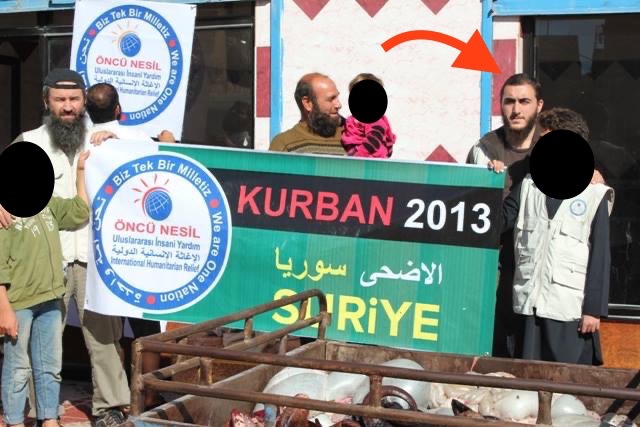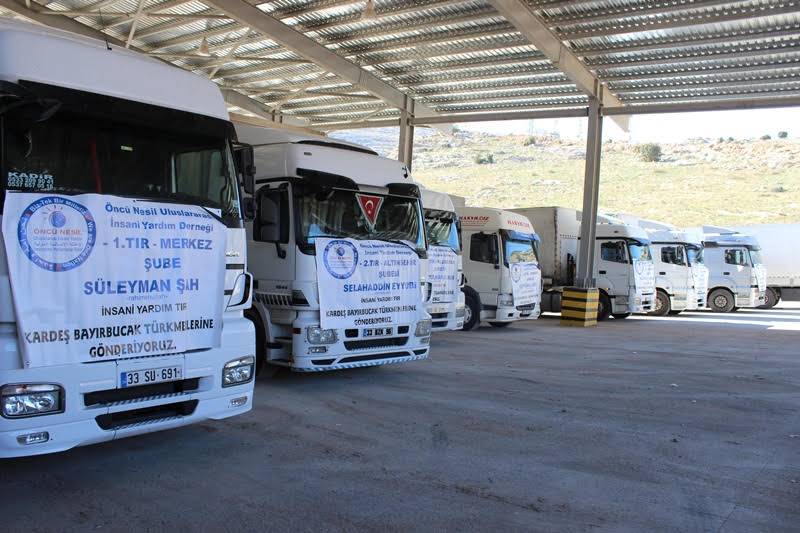Levent Kenez/Stockholm
The US Department of the Treasury on Thursday imposed sanctions on five al-Qaeda supporters operating in Turkey who allegedly provided a range of financial and travel facilitation services to al-Qaeda, including a Turkish national who is a former member of a jihadist NGO that cooperated with Turkish intelligence to transport weapons to extremists in Syria.
Thirty-three-year-old Soner Gürleyen, allegedly an al-Qaeda extremist and financial facilitator, is accused by the Treasury of providing another violent al-Qaeda extremist with assistance in preparation for the latter’s travel.
Letter submitted by the Russians to the UN Security Council in 2016 accusing Öncü Nesil along with other jihadist organizations of arms smuggling:
Gürleyen is a former member of al-Qaeda-affiliated front NGO the Öncü Nesil Humanitarian Relief Association (Öncü Nesil İnsani Yardım Derneği), which was named in a UN Security Council document submitted by Russia on Feb. 10, 2016 as an organization that sent arms and supplies to terrorist groups in Syria with help from the Turkish intelligence service. A noteworthy detail is that the assassin of Russian Ambassador to Turkey Andrei Karlov in 2016 had donated to Öncü Nesil a few months before the assassination. The murderer was known for his closeness to Islamic organizations supported by Turkish President Recep Tayyip Erdoğan.

Once Nesil was a well-known pro Al-Nusra association among jihadist associations that had organized aid trucks to Syria along with other government-backed NGOs. In 2014 weapons and ammunition were found in humanitarian aid trucks bound for Syria. It was later revealed that the trucks belonged to the Turkish intelligence agency (Milli İstihbarat Teşkilatı, or MİT) and that the cargo was going to fighters in Syria. The government claimed there was humanitarian aid in the trucks, but images of the weapons were later published in the Turkish press. Erdoğan accused the prosecutors and gendarmes who stopped the trucks of treason, claiming a conspiracy against the government. The prosecutor and gendarmes who were later tried were sentenced to lengthy prison terms. Former Prime Minister Ahmet Davutoğlu repeatedly said the trucks were going to Turkmens in Syria, while a minister in his cabinet, Tuğrul Türkeş, denied it.

Öncü Nesil launched new aid campaigns to reinforce the perception that aid trucks were going to Turkmens in northern Syria after the MIT truck scandal, strengthening the impression that it was guided by the authorities. The association, whose branches were raided numerous times by the police, particularly in 2015 and 2016, held the Gülen movement, a civic group that is critical of the Erdoğan regime and has been the subject of a brutal crackdown in Turkey, responsible for the police operations against them, claiming that prosecutors and officers affiliated with the Gülen movement stopped the MİT trucks from going to Syria and that the movement was collaborating with “crusaders,” a hate speech word that radical Islamists often use to refer to Christians and the West.
Öncü Nesil surprisingly decided to end its activities in 2018 because its name was the same as the slogan of a foundation owned by cleric Alparslan Kuyrul, who was an opponent of the Erdoğan government, claiming it caused confusion.
It is no secret that new associations were established under different names by the members of Öncü Nesil. Gürleyen, who was sanctioned by the Americans, became president of one of the newly established associations called Yeşil Sancak (Green Flag) in İstanbul. Yeşil Sancak continues to organize aid campaigns for various countries, especially in Africa.

Gürleyen was recently on the agenda again because of his jihadist activities. He was detained at an airport in Niger on December 25, 2019. Nigerien authorities claimed that he provided logistical support to Islamist groups in the country including the Islamic State in West Africa Province (ISWAP). Turkey reportedly made repeated attempts to secure his release and bring him home.
Turkey, which is accused by its Western allies of supporting radical movements in the region, has started to temporarily sanction people who are blacklisted by the US and freeze their assets in order to get along with the administration of US President Joe Biden. However, judicial proceedings are never initiated against these individuals.












